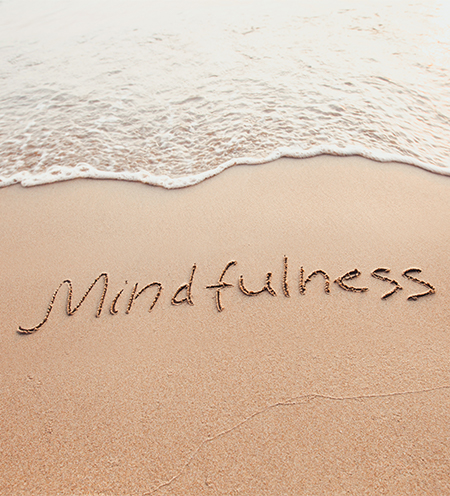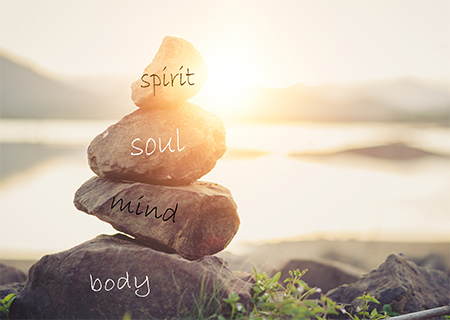 Mindfulness and Self-Regulation
Mindfulness and Self-Regulation
Living in the moment, connecting to our bodies, and creating the future we want through self-awareness.
The Here and Now
Some say the hardest place to be is right now.
Have you ever found yourself re-living the past or hyper-focused on the life you are trying to build? Have you ever looked at the calendar and asked yourself where the time has gone?
Being on the move and busy is often seen as a badge of honor and a marker of self-worth. For example, you fold the laundry while keeping one eye on the kids and another on the television. You plan your day on the commute to dropping kids off at school or listening to a podcast as a plan for your weekend.
As we rush to accomplish our necessary tasks, you may lose your connection with the present moment – missing out on what you’re doing and how you’re feeling. Did you notice whether you felt well-rested this morning or that hydrangeas are in bloom along your route to work?
The Two Mind Modes…
The mind has been said to have two modes: The ‘doing’ mode and the ‘being mode.’
The ‘doing’ mode is goal oriented, triggered when the mind sees a difference between how things are and how it wants things to be.
The ‘being’ mode isn’t focused on achieving specific goals but on accepting and allowing what is. It has been found that the ‘being’ mode was the one that led to lasting emotional change.
Mindfulness reminds us that we are ‘human beings,’ not ‘human doing.’
 What is Mindfulness?
What is Mindfulness?
Mindfulness is the practice of purposely focusing your attention on the present moment – and accepting it without judgment.
Research suggests mindfulness is key to stress reduction and psychological well-being.
By focusing on the here and now, many people who practice mindfulness are less likely to get caught up in worries about the future or regrets over the past. They are less preoccupied with concerns about success and self-esteem and can better form deep connections with others.
Mindfulness improves the brain.
Mindfulness practices are generally thought of as having the ability to change your brain’s responses to stress. The idea is that by reminding yourself to view the world with curiosity rather than judgment, you can strengthen the part of your brain that manages your emotions and decrease the neurological “fight or flight” response that can cause anxiety. Practicing mindfulness regularly can increase your brain’s resilience to future stressors.
Mindfulness improves the body.
Mindfulness has beneficial physiological effects on the body. Many mindful practices involve breathing deeply and engaging in physical activity such as stretching or guided body movements. They can decrease bodily tension and physical stress. Mindfulness has been suggested to help relieve stress, treat heart disease, lower blood pressure, reduce chronic pain, improve sleep, and alleviate gastrointestinal difficulties.
Mindfulness improves the spirit.
Some people have viewed mindfulness through a spiritual lens and feel it connects them to a greater purpose and meaning in life, reminding ourselves that we are human ‘beings,’ not human doing. Mindfulness is about striving for a healthy mind, body, and spirit.
 Mindfulness in Session
Mindfulness in Session
Therapy can sometimes be exhausting as we move into the wounded parts we all have as members of the human experience.
Often, our thoughts and emotions become filled with intensity. It can cause one to feel “out of control.”
Sometimes, you may enter into the session feeling wound up and unregulated as you may have experienced a challenging day.
Mindfulness incorporated in the session helps us use our natural breathing to gain greater control. It increases self-awareness, a sense of calm, peace, and happiness, and greater resilience during stressful times.
It brings our attention to our bodies and notices subtle body sensations such as an itch or tingling without judgment and lets them pass. Notice each part of your body in succession from head to toe.
Learn to ride the wave.
Practice a steady and relaxed naming of emotions: “joy,” “anger,” and “frustration.”
Accept the presence of emotions without judgment and learn to ride the waves of their intensity and respond to emotions intentionally instead of reacting to or avoiding difficulties.
Learn to live life moment by moment and gain peace, no matter what comes your way.
Call me at (901) 281-7169 to schedule a free consultation.

